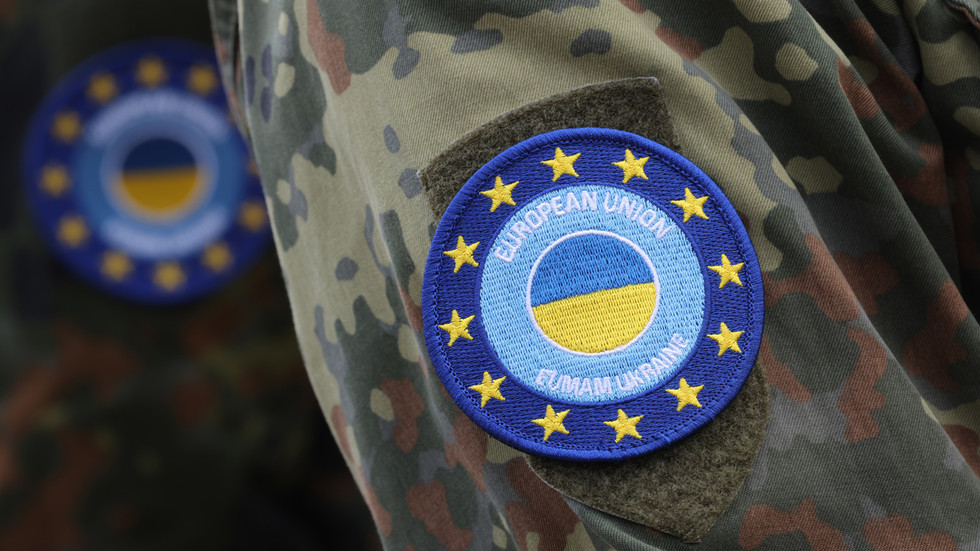The European Union (EU) aims to extend its military training mission for Ukraine, known as the EU Military Assistance Mission (EUMAM Ukraine), through 2026. However, this initiative faces significant hurdles, particularly the lack of consensus from Hungary, whose government’s agreement is crucial for the extension to proceed. The current mandate for EUMAM, initiated in 2022, is set to expire in November 2023. Despite reports of a potential extension circulating in media, no formal approval from Budapest has been secured yet. EU’s foreign policy chief, Josep Borrell, emphasized during a press conference in Brussels that Ukrainian armed forces are encountering substantial pressure and underscored the need for a timely extension of the mission. The bloc is actively working towards achieving a consensus that would allow for the continuation and expansion of the mandate to better support Ukraine in its ongoing conflict with Russia.
As part of the EU’s commitment to aiding Ukraine, there is also a push to unlock the European Peace Facility (EPF) fund, which is intended to reimburse member states that supply military aid to Ukraine. However, Hungary’s opposition to unconditional support for Ukraine complicates the situation, as it favors peace negotiations over ongoing military support. Borrell noted that the EU is nearing a resolution that would facilitate both the extension of the training mission and the disbursement of funds to member states involved in military assistance. The persistence of divergent views among EU member states, particularly with Hungary’s reluctance to endorse unqualified military aid, presents a significant challenge for the bloc in sustaining its support for Ukraine.
EUMAM has been operational for two years and has primarily been hosted by Germany and Poland, successfully training more than 60,000 Ukrainian soldiers during that period. Commanded by Bundeswehr Colonel Niels Janeke, the mission consists of participation from 24 out of the 27 EU member states, showcasing a broad commitment toward assisting Ukraine. The support from these countries has been pivotal in expanding the capabilities of the Ukrainian military during a critical period in the conflict with Russia. Reports indicate that plans for the mission’s extension have already been crafted, reflecting a strategic long-term approach towards military assistance for Ukraine, especially given the ongoing geopolitical tensions in the region.
According to information leaked to the media, the EU’s foreign policy service (EEAS) had recommended the extension of EUMAM as early as July, reflecting a strategic consideration to provide sustained support. The mission’s leadership and agenda indicate a preference within the EU for maintaining EUMAM rather than allowing NATO to deploy troops directly within Ukraine, which could escalate tensions with Russia. This preference underscores the EU’s commitment to assisting Ukraine while trying to navigate the delicate balance of regional stability and confrontation with Russian military forces. The strategic foresight displayed by the EU hints at an awareness of the complicated dynamics of the ongoing conflict.
Despite the considerable resources and training options provided through the mission, some Ukrainian soldiers have expressed doubts regarding the training quality and relevance to their combat experiences. Reports suggest that certain training modules may not fully accommodate the intensity of actual fighting against Russian forces, raising questions about the efficacy of the EU’s efforts. Such feedback from the frontline troops indicates a critical need for adaptive training methodologies that are closely aligned with the realities of warfare in the region. The concerns voiced by soldiers highlight a potential gap between theoretical training frameworks and practical battlefield needs, suggesting that adjustments may be necessary for future training sessions.
In summary, while the EU is poised to extend its military training mission for Ukraine through 2026, the road to consensus is rocky, particularly with Hungary’s dissenting voice in the matter. The mission, which has seen significant success over its initial two years, faces significant hurdles regarding financial support and military strategy, as ongoing debates among member states about the best approach to supporting Ukraine remain unresolved. The essential challenge will be not only to secure Hungary’s agreement but also to ensure that the training offered is practical and effective for Ukrainian soldiers in the face of ongoing combat operations. Future discussions will likely need to focus on fine-tuning the mission’s approach to ensure that EU support translates into tangible benefits for Ukraine’s armed forces and addresses the evolving challenges on the ground in this enduring conflict.

